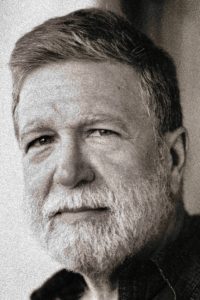An Interview with Peter Turchi
Fiction faculty member Peter Turchi was recently interviewed on the First Draft Podcast, and the conversation was then featured on LitHub. Read an excerpt and find a link to the full audio below:
Mitzi Rapkin: You have a chapter on digressions and misdirection and asides. And I think that question of what is right and wrong in fiction, at least when you have first lessons in fiction, and people say, for instance, never have backstory, then you have heart palpitations every time you start to write backstory, even if it’s 20 years since you got that advice, and you’re talking about digressions in a way they can make people feel good, like it’s okay to have a digression. And sort of this question that you’re holding is everything essential to the story? And how do you measure that?
Peter Turchi: Yeah, well, that’s a good question. You know, there’s the old-fashioned notion that the ideal novel or story would be all perfect words, you know, each word perfectly chosen. But there are a variety of people, Robert Cohen, who once gave a talk on great sentences, and as part of it said, not every sentence in a story should be great, you need room for the great ones to shine, so, you need some quieter sentences, too.
Kevin McIlvoy, who recently passed away gave a wonderful lecture on useless beauty. That is the moments and stories and novels which aren’t plot oriented, and may not even change our understanding of character, but in their own way add something to the work. So, I think the notion that everything needs to be pared down to what’s absolutely essential, is one of those rules or pieces of advice that is exaggerated to ill effect.
Listen to the full interview here: Peter Turchi | LitHub



